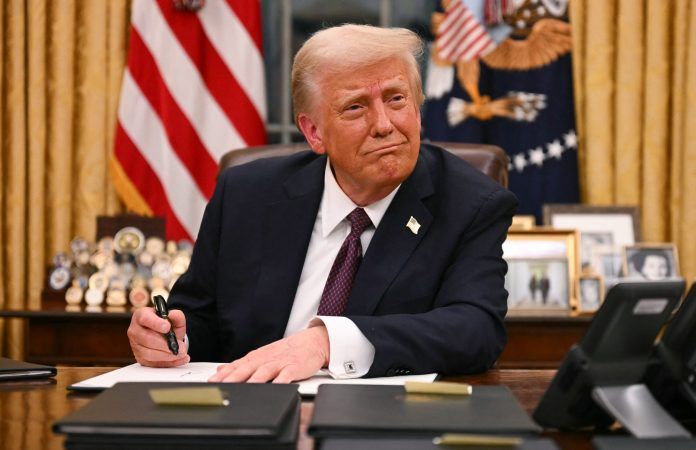In a shocking move, the United States has frozen virtually all foreign aid, marking a significant shift in its global assistance policy. This decision, which came into effect on January 25, 2025, has far-reaching implications for international relations, humanitarian efforts, and global security. Let's delve into the details of this policy change and its potential consequences.
The New "America First" Policy
Secretary of State Marco Rubio issued an internal memo shortly after President Donald Trump took office, outlining an "America First" approach to foreign assistance1. The directive states, "No new funds shall be obligated for new awards or extensions of existing awards until each proposed new award or extension has been reviewed and approved". This sweeping order affects a wide range of aid programs, from development assistance to military aid.
Exceptions to the Rule
While the freeze is comprehensive, there are a few notable exceptions:
- Emergency food assistance
- Military funding for Israel
- Military funding for Egypt
These exceptions highlight the strategic priorities of the current administration, maintaining support for key allies in the Middle East while drastically reducing aid elsewhere.
Impact on Global Health Initiatives
One of the most significant casualties of this policy shift is the President's Emergency Plan for AIDS Relief (PEPFAR)1. Launched in 2003 under President George W. Bush, PEPFAR has been credited with saving approximately 26 million lives, primarily in Africa. The pause in funding for this program could have severe consequences for millions of people relying on anti-retroviral drugs to treat HIV/AIDS.
Other Affected Health Programs
- Malaria prevention efforts, including the distribution of mosquito nets
- Vaccination programs
- Maternal and child health initiatives
Military Aid and Global Security
The freeze on military aid has significant implications for global security, particularly in regions where the U.S. has been actively supporting allies.
Ukraine: A Case Study
Prior to this policy change, the United States had been providing substantial military aid to Ukraine in its conflict with Russia. The previous administration had committed to supporting Ukraine's defense capabilities through 2025. However, the new freeze puts this commitment in jeopardy, potentially altering the balance of power in the region.
Economic and Diplomatic Repercussions
The sudden halt in foreign aid is likely to have far-reaching economic and diplomatic consequences:
- Reduced U.S. influence in developing nations
- Potential power vacuum in regions where U.S. aid was significant
- Strained relationships with long-standing allies
- Possible increase in global instability
Domestic Debate and Opposition
The decision to freeze foreign aid has sparked intense debate within the United States. Democratic politicians have voiced strong opposition, arguing that the move undermines U.S. credibility on the global stage1. They point out that foreign assistance accounts for only about 1% of the federal budget but plays a crucial role in advancing American interests abroad.
Congressional Pushback
Representatives Gregory Meeks and Lois Frankel have stated that they will seek to implement foreign assistance as appropriated by Congress, setting the stage for a potential conflict between the legislative and executive branches 1.
Long-term Implications
While the immediate effects of the aid freeze are already apparent, the long-term implications could be even more significant:
- Shift in global power dynamics
- Potential increase in humanitarian crises
- Reduced capacity to respond to global health emergencies
- Possible increase in regional conflicts
The Future of U.S. Foreign Aid
As the world grapples with the consequences of this policy shift, several questions remain:
- Will this freeze be temporary or signal a permanent change in U.S. foreign policy?
- How will other nations respond to fill the gap left by reduced U.S. aid?
- What will be the impact on global development goals and initiatives?
Conclusion
The decision to freeze foreign aid represents a seismic shift in U.S. foreign policy. While proponents argue that it puts "America First," critics warn of dire consequences for global stability, health, and security. As the situation unfolds, the world watches closely to see how this new approach will reshape international relations and impact millions of lives around the globe.
The coming months and years will be crucial in determining the full extent of this policy's impact and whether the United States will maintain its position as the world's largest donor of foreign aid. One thing is certain: the global landscape of international assistance has been irrevocably altered, and the repercussions of this decision will be felt for years to come.
